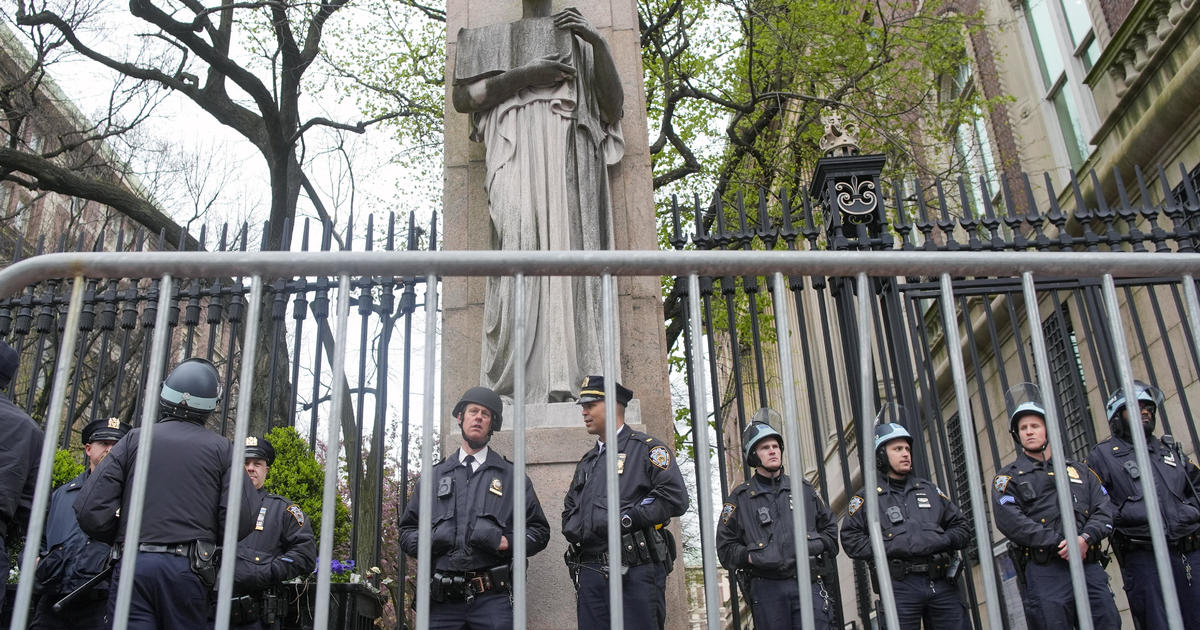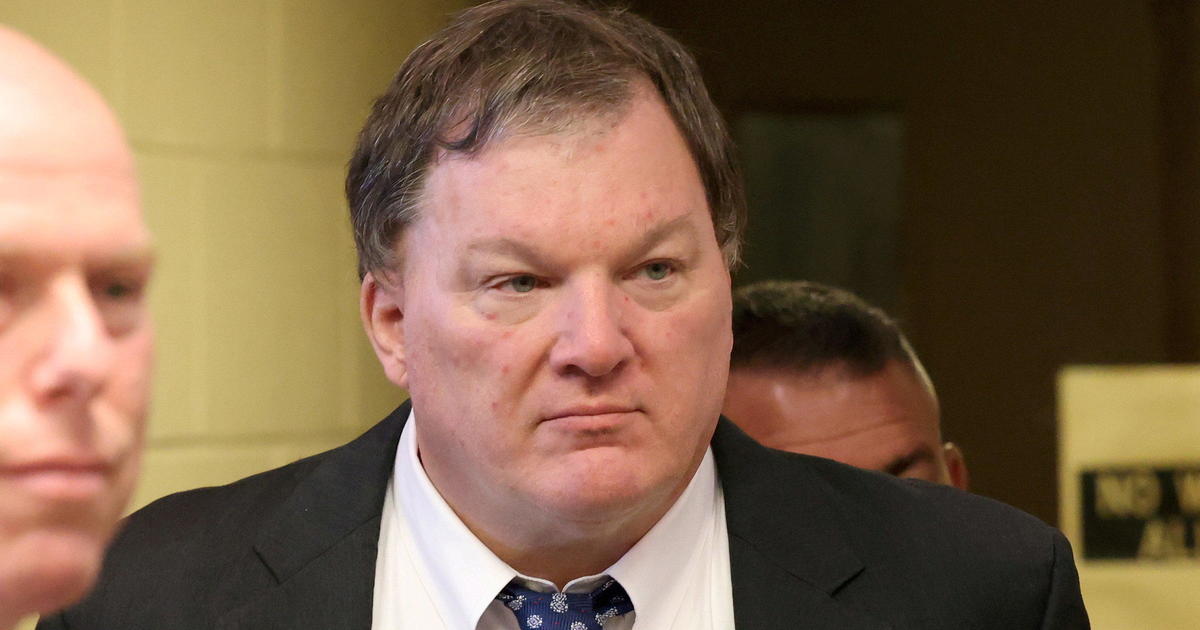Trump: Generals 'Reduced To Rubble' During Obama's Administration
NEW YORK (CBSNewYork/AP) -- Leveling unusually harsh criticism against the military, Republican Donald Trump said Wednesday night that America's generals have been "reduced to rubble" under President Barack Obama and suggested he would fire some of them if he wins in November.
Trump's comments came during a televised national security forum where he and Democratic rival Hillary Clinton each fielded 30 minutes of questions about their experience and judgment to be commander in chief. While the candidates never appeared on stage together, their back-to-back sessions served as a preview of sorts for their upcoming presidential debates.
COMPLETE CAMPAIGN 2016 COVERAGE
By virtue of a coin flip, Clinton took the stage first and quickly found herself responding at length to questions about her years in government. She reiterated that she had made mistakes in relying on a personal email account and private server as secretary of state and in voting for the 2003 invasion of Iraq as a senator. But she defended her support for U.S. military intervention to help oust a dictator in Libya, despite the chaotic aftermath.
"I'm asking to be judged on the totality of my record," said Clinton, who grew visibly irritated at times with the repeated focus on her past actions.
Clinton, who has cast Trump as dangerously ill-prepared to be commander in chief, tried to center the discussion on her foreign policy proposals should she win in November. She vowed to not send American ground troops into Iraq or Syria to fight the Islamic State of Iraq and Syria.
"I use force as a last resort, not a first choice," Clinton told an Army veteran.
She pledged to hold weekly Oval Office meetings with representatives from the Pentagon and Department of Veterans Affairs to stay abreast of health care for veterans.
Clinton even got a dig in at Trump despite moderator Matt Lauer asking the candidates to avoid attacking each other.
"Last thing we need to do is play into the hands of ISIS, going after American Muslims -- defaming a Gold Star family, the family of Capt. Khan," Clinton said.
Trump did little to counter the criticism that he lacks detailed policy proposals, particularly regarding ISIS. He both insisted he has a private blueprint for defeating the extremist group and that he would demand a plan from military leaders within 30 days of taking office.
Asked to square his request for military options with his harsh criticism of the current crop of generals, Trump said simply: "They'll probably be different generals."
As a businessman with no substantial national security experience, Trump was also vague about how he is preparing for the enormous array of complex issues that would land on his desk as commander in chief. He cited his team of military advisers, but also said he has "a common sense" that will help him make decisions on foreign policy.
When asked about the intelligence briefings he's received, Trump claimed that intelligence offers were not happy with President Barack Obama.
"What I did learn is that our leadership, Barack Obama, did not follow what our experts and our truly – when they call it intelligence, it's there for a reason, what our experts said to do," Trump said. "And I was very, very surprised. In almost every instance. And I could tell. I'm pretty good with the body language. I could tell they were not happy. Our leaders did not follow what they were recommending."
Trump also renewed his praise of Russian President Vladimir Putin for having "great control over his country." Trump's warm words about Putin have troubled some of his fellow Republicans who see the Russian leader as a threat to American allies in Europe.
With just two months until Election Day, national security has emerged as a centerpiece issue in the White House race. Both candidates believe they have the upper hand, with Clinton contrasting her experience with Trump's unpredictability and the Republican arguing that Americans worried about their safety will be left with more of the same if they elect President Barack Obama's former secretary of state.
CBS2's Tony Aiello reported that a new poll shows neither candidate inspires great trust, as 45 percent said they have faith in Clinton as president, versus 39 percent for Trump.
Reaction from the audience as it left the Intrepid was mixed about the candidates.
"I prefer someone with more experience," said Tony Lee, a disabled veteran who is supporting the former secretary of state.
"I thought he did OK and he's getting better daily," said Vietnam veteran Ralph Vitaliano.
"I think she did well. She still has to gain Americans' trust," said Air Force veteran Barbara Bishop.
While GOP candidates are often seen by voters as having an advantage on military and national security issues, Trump is far from a traditional Republican. He has no military experience and has repeatedly criticized the skill of the armed forces.
A flood of Republican national security experts have instead chosen to back Clinton, helping bolster her case that Trump is broadly unacceptable. Earlier Wednesday, former Defense Secretary William Cohen joined the list of GOP officials supporting Clinton.
Ahead of the forum, Trump rolled out a new plan to boost military spending by tens of billions of dollars, including major increases in the number of active troops, fighter planes, ships and submarines.
His address earlier in the day also included plans to eliminate deep spending cuts known as the "sequester" that were enacted when Congress failed to reach a budget compromise in 2011. Republicans and Democrats voted for the automatic, across-the board cuts that affected both military and domestic programs, though the White House has long pressed Congress to lift the spending limits.
Trump expressed support for the sequester in interviews in 2013 -- even describing them as too small -- but seemed to suggest at the time that military spending should be exempt.
A senior adviser said ahead of the speech that Trump would make sure the additional spending was fully paid for but did not explain how.
The United States currently spends more than $600 billion a year on the military, more than the next seven countries combined.
(TM and © Copyright 2016 CBS Radio Inc. and its relevant subsidiaries. CBS RADIO and EYE Logo TM and Copyright 2016 CBS Broadcasting Inc. Used under license. All Rights Reserved. This material may not be published, broadcast, rewritten, or redistributed. The Associated Press contributed to this report.)



